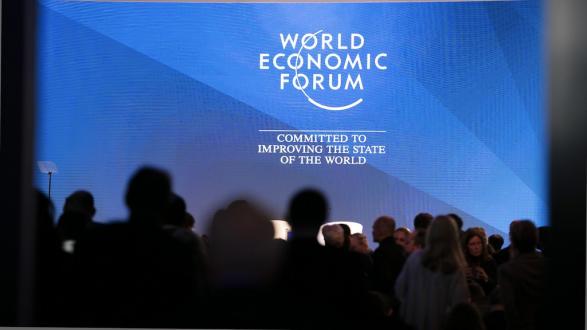In:
Global Beat is your weekly stop for news from around the world. Join us every Friday morning for important stories you should know about.
This week, the World Economic Forum in Davos, Switzerland, kicks off; 11 countries reach an agreement on a new Trans-Pacific Partnership trade deal; Tokyo conducts its first missile attack drill since the end of World War II; and more.
____________________
Americas
Eleven countries reached an agreement on a new Trans-Pacific Partnership (TPP) trade deal, one year after President Trump withdrew the United States. The deal will be signed by Australia, Brunei, Canada, Chile, Japan, Malaysia, Mexico, New Zealand, Peru, Singapore, and Vietnam in March under a new name: the Comprehensive and Progressive Agreement for Trans-Pacific Partnership (CPTPP). Like the original 2015 agreement, CPTPP will expand free trade rules, embrace the digital economy, and adopt stronger protections for intellectual property. Officials from the 11 nations hope that the United States will eventually rejoin the trade deal, while some analysts fear it could complicate NAFTA negotiations.
Also check out:
- Trump administration wants to expand internet access in Cuba – Miami Herald
Central & South Asia
Pakistani Foreign Minister Khawaja Muhammad Asif said at the World Economic Forum in Davos this week he hopes the United States and Pakistan could focus on their bilateral relationship again, rather than "through the prism of Afghanistan." However, he is not optimistic that the Trump administration will change its rhetoric about Pakistan in the near future. In his first tweet of the year, Trump wrote, "The United States has foolishly given Pakistan more than 33 billion dollars in aid over the last 15 years, and they have given us nothing but lies & deceit, thinking of our leaders as fools. They give safe haven to the terrorists we hunt in Afghanistan, with little help. No more!" Meanwhile, Pakistani officials called a suspected U.S. drone attack that killed two Haqqani militants near Afghanistan "detrimental."
Also check out:
- Trump solar tariffs reverberate in India, China’s biggest buyer – The Economic Times
China & East Asia
Tokyo conducted its first simulated missile attack drill since the end of World War II. About 20 other Japanese cities have conducted similar drills in recent weeks. Residents would only have about eight minutes to respond to an incoming North Korean missile. Some people were skeptical about the usefulness of the drill, while others called it fear mongering. Meanwhile, a North Korean delegation toured potential venues in Seoul for the upcoming Winter Olympics.
Also check out:
Europe & Russia
Arthur Wagner, a leading member of Germany’s far-right political party Alternative für Deutschland (AfD), has converted to Islam and resigned from the party. AfD is known for its fervent anti-Muslim and anti-immigrant views. In September 2017, AfD won 12.6 percent of the vote in federal elections and gained seats in the Bundestag for the first time as the third largest party. Wagner had served on the party’s national executive committee and resigned January 11 for "personal reasons."
Also check out:
- In Davos, a club Trump has revered and resented finally opens its doors – The New York Times
Middle East & North Africa
The UN’s special envoy for Yemen, Ismail Ould Cheikh Ahmed of Mauritania, is resigning his post as of next month, the second UN mediator to do so in less than three years. The UN’s attempts to resolve the conflict have so far not been successful. More than 22 million people need food and other aid in what the UN has called the world’s biggest humanitarian disaster. On Monday, Saudi Arabia announced it would donate $1.5 billion to relief organizations and create "safe-passage corridors" so that food and other aid could be delivered.
Also check out:
- Israel’s plan to force out African migrants – BBC News
Southeast Asia & Oceania
Bangladesh has postponed its plan to repatriate more than 650,000 Rohingya Muslim refugees back into Myanmar. Many Rohingya said they did not want to go, and would therefore be forced against their will if the plan went forward. Some observers are calling for Rohingyas themselves to be part of the process in developing a repatriation plan. U.S. Defense Secretary James Mattis said this week that this tragedy is "worse than anything" that Americans have seen in the media.
Also check out:
Sub-Saharan Africa
Zimbabwean President Emmerson Mnangagwa told investors at the World Economic Forum in Davos that his country is now "open for business." He said that means the government will look at changing the country’s land reform and indigenization laws, which have restricted international investors and hampered economic growth. He also said that his priority now is to embrace the international economy and modernize infrastructure.
Also check out:
- Climate-resilient "super beans" boost food rations for South Sudanese refugees in Uganda – The Guardian




